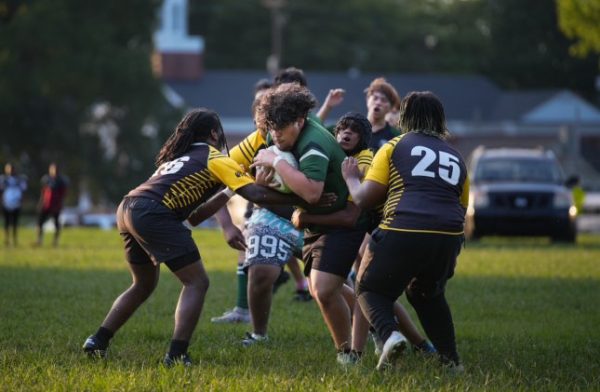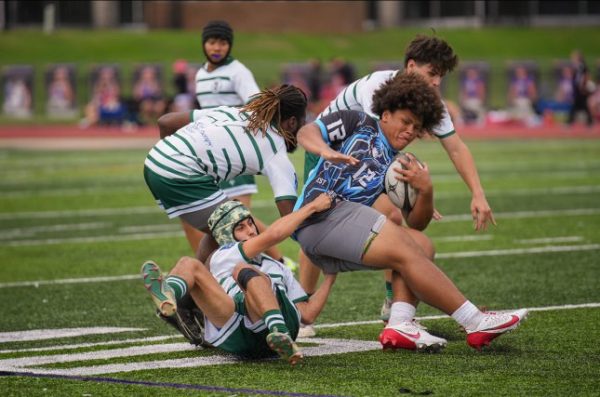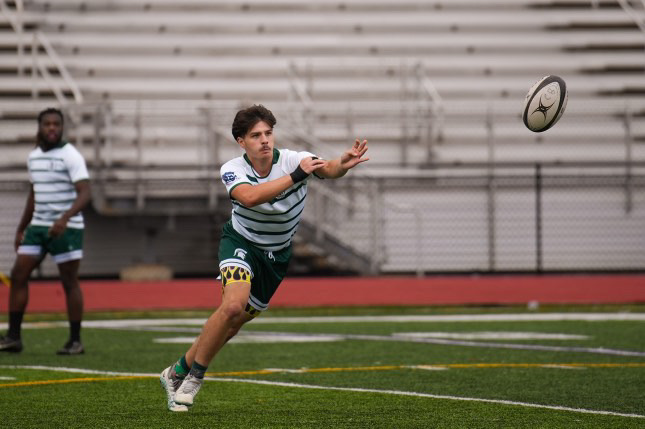An unbreakable bond is carried throughout the rugby team, a blend of brotherhood that transcends throughout the sport, and envelopes each and every member with a profound sense of kinship. This bond may have been the key to the team’s success in placing fourth in the state game this year.
The rugby team’s ability to communicate effectively played a crucial role during their back-to-back tournaments at the regional and state levels in Hendersonville, Tennessee, held the first week of November.
“It’s how we practiced for sure, we always practice communication,” Keegan Mainers (12) said. “We want to communicate on everything, but we lacked [that] sometimes in certain games, [and] I feel like we could have done better.”

Effective practice emerged as an essential element for great teamwork and knowledge of rugby. Their practice efforts helped them form well-grounded leadership skills. The coaches were instrumental in identifying and fostering the strengths of the players, ensuring that their talents were not only recognized but also developed to their fullest potential.
“[The coaches] taught me everything I know,” Jaylan Phann (11) said. “I didn’t know anything until they came.”
Many rugby players have shown a true enthusiasm for the sport. Their commitment and love for the game are evident in their dedication on and off the field. Rugby player Keegan Mainers has played since his freshman year all the way to senior year. This passion not only drives their performance but also inspires their teammates around them.
“I really joined and just fell in love with the sport, [rugby is] really entertaining and fun to play,” Mainers said. “Practice is fun too, that is important. When practice is fun you will bring a lot of people to a team.”
Commitment to rugby extends beyond the game itself; it involves a dedication to maintaining physical fitness, supporting fellow players and being ready for unexpected challenges. Athletes are often encouraged to establish a consistent routine that enhances their performance and fosters teamwork.
“You really have to keep your body moving,” Alexis Sayong (10) said. “You have to be energetic; I would say like working out, doing cardio [and] eating.”
There were several significant distinctions between the regional and state competitions. Each level brought its own unique set of challenges and opportunities for participants, shaping the overall experience in diverse ways. Regional events often displayed local talent and had a form of community spirit. Meanwhile, state competitions tended to attract a broader range of competitors, elevating the level of competition and intensity.
“[Both competitions] were the best of the best,” Phann said. “[In] regionals we were getting everything together and making sure the team was right. States were when we actually got everything right but still had little mistakes.”
The two distinct competitions featured varied opponents, necessitating adjustments to the game plan. The criteria for judging and the resources accessible at each stage could vary significantly, impacting the way participants prepared themselves and executed their strategies.
“[There’s] a lot more pressure in state,” Julio Varela (10) said. “We would pressure the [opponents] more into defense and get more offense when taking the ball.”
The demanding nature of rugby requires players to possess unwavering determination and energy. Engaging in this intense sport means that athletes must consistently harness a form of resilience to thrive on the field. This tests not only physical capabilities but also calls for a robust mindset.
“[I am always] praying and talking with the team. I had to make sure everybody’s heads were good [and] that their minds were ready,” Phann said.
The value of teamwork in rugby plays an exceptional role in shaping a supportive environment where players are motivated to join forces and aim for common goals. This collective mindset not only prepares them to overcome difficulties but also deepens their commitment to functioning smoothly as a unified group. Spending time together helps solidify this bond and creates a better chance for success.
“Best part of the tournament was winning games, spending time with your teammates and spending time with your coaches,” Sayong said.





































